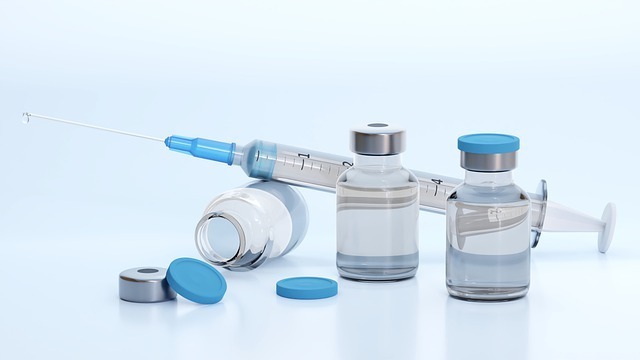There has been concern surrounding the COVID-19 vaccine and rare cases of myocarditis in young adults and adolescents. A recent study, published in the journal Circulation, suggests that these rare cases generally have mild symptoms and a short recovery time.
The study, co-authored by paediatric cardiologist Dr. Dongngan T. Truong of the University of Utah, reported on 139 adolescents and young adults who presented with at least one suspected episode of myocarditis.1These episodes occurred within 30 days of COVID-19 vaccination. Patients were from Canada and the U.S., with ages ranging from 12 to 21.
Most cases of post-vaccine myocarditis were from mRNA COVID-19 vaccines
Myocarditis is characterized by inflammation of the heart muscle, or myocardium. This condition can make it challenging for the heart to pump properly, and some common symptoms felt by the patients included chest pain, fever, and shortness of breath.
Of the 139 patients included in the study, 94.2%, 3.6%, and 0.7% received the Pfizer-BioTech, Moderna, and Johnson & Johnson vaccines, respectively. Both Pfizer and Moderna are mRNA vaccines.
Prior to the study, myocarditis post-mRNA vaccination was observed particularly in males in Israel and the U.S. military. The cohort analyzed for this study was 90.6% male and 66.2% white, with a median age of 15.8 years.
Twelve patients showed signs of myocarditis after the first dose, while the majority showed signs after they received their second. One patient showed signs of myocarditis after both the first and second dose of his Pfizer-BioTech vaccine.
Non-invasive treatment was used for rare myocarditis cases
Of the 139 patients, 26 were admitted to the Intensive Care Unit (ICU). Only two of these patients required inotropic vasoactive agents to increase the strength of their heartbeat and dilate blood vessels so that blood can pass through easier.
The median hospital stay was 2 days.
Systolic function generally remained stable
81.3% of patients showed normal systolic function – which is the strongest part of the heartbeat – while 15.8%, 1.4%, and 1.4% showed mild, moderate, and severe systolic dysfunction, respectively.
Serious complications of tachycardia – heart rate above 100 beats per minute – and complete heart blockage was uncommon at 5.8% occurrence.
Patients with weakened heart function generally recovered quickly
97 patients underwent an MRI of their heart. Of these patients, 19% showed evidence of a weakened ability to pump blood at their left ventricle. However, in the 25 patients who received follow-up, ventricular function returned to normal.
Follow-up is needed to monitor the long-term effects of myocarditis following COVID-19 vaccine administration. The study notes, “Future studies that focus on determining risk factors and mechanisms of development of myocarditis are urgently needed, particularly as COVID-19 vaccines become more widely available to younger children in the future”.1
Nonetheless, the results provide helpful information regarding the risk factors of the COVID-19 vaccine. Dr. Jane Newburger from Boston Children’s Hospital, co-leader of the study, said, “Findings of this study provide reassurance that youth who develop myocarditis after COVID-19 vaccination generally do well clinically, although long-term follow-up will be important to chart the course of recovery.”2
References
- Truong, D.T. et al. (2021). Clinically Suspected Myocarditis Temporally Related to COVID-19 Vaccination in Adolescents and Young Adults. Circulation; 2021. Doi: 10.1161/CIRCULATIONAHA.121.056583.
- Tornatore, E. (2021). Myocarditis, a rare complication of COVID-19 vaccination in teens and youth, is usually mild with fast clinical recovery. EurekAlert! Accessed Dec. 8 2021. Retrieved from https://www.eurekalert.org/news-releases/936956.
- Image by MasterTux from Pixabay



